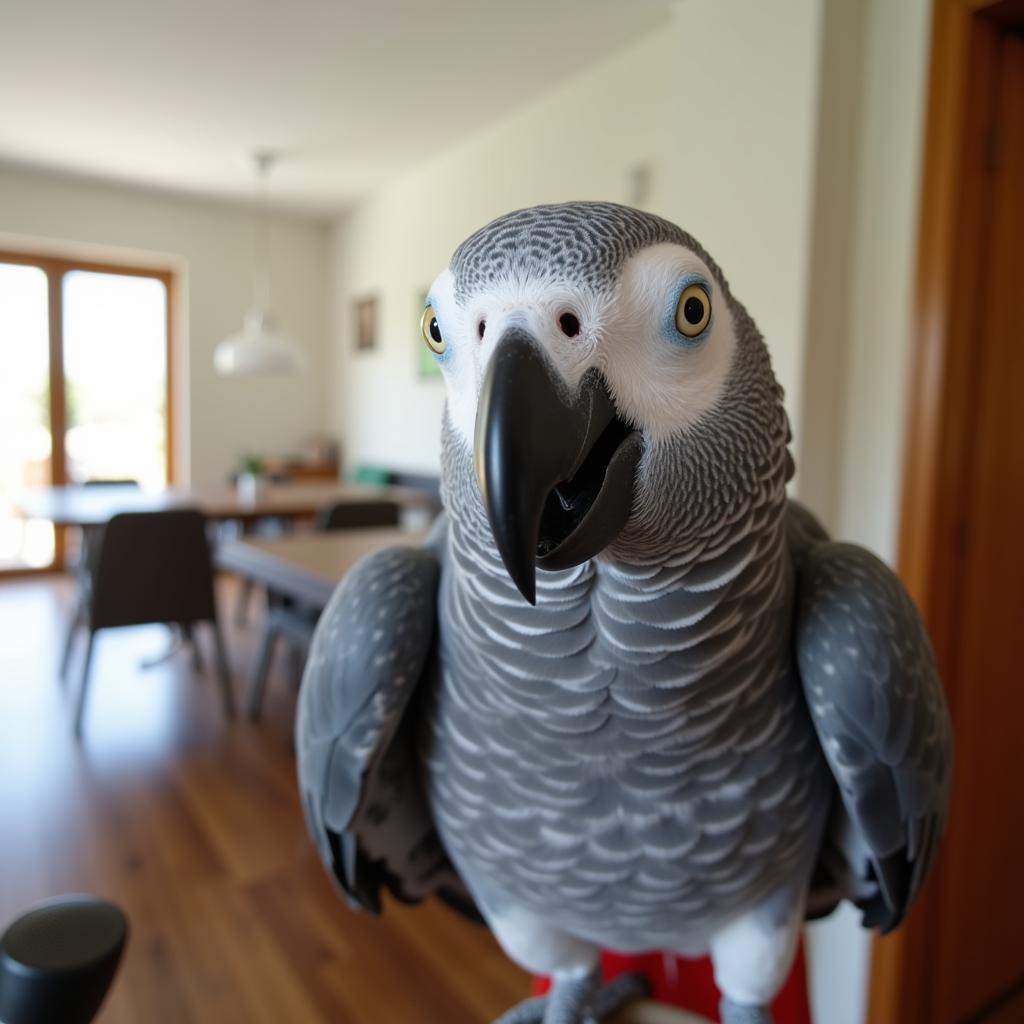African Elephant Mating Habits: A Deep Dive
African Elephant Mating Habits are complex and fascinating, shaped by social structures and biological factors. Understanding these intricate behaviors offers valuable insights into the lives of these majestic creatures.
Male African elephants, known as bulls, typically reach sexual maturity between the ages of 25 and 30, although they may start exhibiting mating behaviors earlier. Female elephants, called cows, reach sexual maturity around 10 to 12 years of age. The timing of musth, a period of heightened testosterone in bulls, plays a significant role in mating. Dominant bulls in musth have a greater chance of mating success. However, female choice also plays a crucial role, with cows often preferring older, more experienced bulls.
The Role of Musth in African Elephant Mating Habits
Musth is a crucial factor in African elephant mating habits. It’s characterized by a significant increase in testosterone levels in bulls, leading to aggressive behavior and increased interest in mating. During musth, bulls secrete a sticky fluid from their temporal glands and urinate frequently, leaving behind a distinct scent that signals their reproductive status to other elephants. This period of heightened hormonal activity can last for several weeks or even months. While in musth, bulls are more likely to engage in fights with other males to establish dominance and gain access to receptive females.
What triggers musth? The exact triggers are not fully understood, but factors like environmental conditions and social cues are thought to play a role.
How long does musth last in African elephants? The duration varies, ranging from a few weeks to several months, depending on the individual bull’s age and condition.
Female Choice and Mate Selection in African Elephants
While dominant bulls in musth have an advantage, female African elephants also exert considerable influence over mate selection. Cows often prefer older, more experienced bulls, likely because they are perceived as better providers of genetic material and protection for their offspring. They may also actively reject advances from younger or less dominant bulls. This female choice plays a critical role in maintaining genetic diversity within elephant populations.
How do female elephants choose a mate? They assess potential mates based on factors such as size, age, musth status, and behavior, often showing preference for older, more experienced bulls.
Do female elephants mate for life? No, female elephants do not mate for life. They may mate with multiple bulls during a single estrus cycle.
The Mating Process and Gestation Period
When a receptive cow encounters a bull she deems suitable, the mating process begins. After a brief courtship, which may involve vocalizations and physical interactions, copulation occurs. The gestation period for African elephants is remarkably long, lasting around 22 months – the longest of any mammal. This extended gestation allows for the development of the calf’s large brain and complex social skills.
What is the gestation period of an African elephant? The gestation period is approximately 22 months, the longest of any mammal.
How many calves do African elephants usually have at a time? African elephants typically give birth to a single calf at a time, although twins can occasionally occur.
Conservation Concerns and the Future of African Elephants
Understanding African elephant mating habits is crucial for conservation efforts. Habitat loss, poaching, and human-wildlife conflict pose significant threats to elephant populations. By studying their reproductive behaviors, researchers can gain insights into factors influencing population dynamics and develop effective strategies for protecting these magnificent animals. For more information about African bush elephant baby, check out this article. You can also learn more about the African bush elephant’s prey.
Conclusion
African elephant mating habits are a complex interplay of biological and social factors. From the powerful influence of musth in males to the selective choices of females, these behaviors are essential for the survival and continuation of this iconic species. Continued research and conservation efforts are critical to ensuring that future generations can witness the majesty of African elephants in their natural habitat. You might also be interested in the African forest elephant diet and general African elephant news. Another fascinating creature in the African ecosystem is the African ghost crab.
FAQ
-
What age do African elephants start mating? Males typically reach sexual maturity between 25 and 30 years old, while females mature around 10 to 12 years old.
-
What is musth in African elephants? Musth is a period of heightened testosterone in male elephants, characterized by aggressive behavior and increased interest in mating.
-
How long is the gestation period of an African elephant? The gestation period is approximately 22 months.
-
How do female elephants choose a mate? Females often choose older, more experienced males, likely for their better genes and protection.
-
What are the main threats to African elephant populations? Habitat loss, poaching, and human-wildlife conflict are major threats.
-
Do elephants mate for life? No, elephants do not mate for life.
-
How often do elephants give birth? Elephants usually give birth every 2-4 years.
Do you have any other questions about African elephants? Contact us!
For further assistance, please contact us:
Phone: +255768904061
Email: kaka.mag@gmail.com
Address: Mbarali DC Mawindi, Kangaga, Tanzania
Our customer service team is available 24/7.



